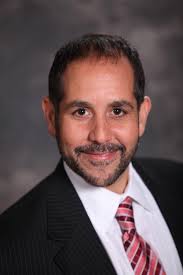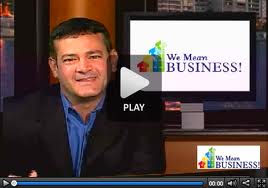The most effective (1-question) customer survey
When I ask business owners and customers alike what they believe the ultimate 1-question customer survey might be, the response is often the same: “Would you do business with us again?” How about a deeper question though; one that puts more at stake; more on the line (i.e., your good name and personal reputation)? You see, I believe we’re willing to suffer through more than we’d be willing to put a friend or colleague through. Enter The Ultimate Question, as defined by business strategist Fred Reichheld in his book by the same name:
What is the ultimate question?
“On a scale of 0-10, how likely is it that you would recommend [our company] to a friend or colleague?”
Lots of companies have already adopted it, so if it hasn’t yet been asked of you, you will likely begin to notice it soon.
 I find it difficult to discuss the customer experience, customer satisfaction and customer loyalty without referring to Reichheld’s work. Don’t waste your time developing – an albeit thoughtful – customer survey with lots of marvelous questions. Chances are good that only a certain “type” of customer will take the time to complete your lengthy survey anyhow. And if that’s the case, won’t your results be skewed right from the start? (Nothing against that “type,” by the way – I’m usually one of them.)
I find it difficult to discuss the customer experience, customer satisfaction and customer loyalty without referring to Reichheld’s work. Don’t waste your time developing – an albeit thoughtful – customer survey with lots of marvelous questions. Chances are good that only a certain “type” of customer will take the time to complete your lengthy survey anyhow. And if that’s the case, won’t your results be skewed right from the start? (Nothing against that “type,” by the way – I’m usually one of them.)
Chances are good that you and your team won’t make the time or have the expertise to do anything worthwhile with the feedback anyway. Don’t get me wrong, you may have the best of intentions … it’s just that I’ve seen many a company make the mistake of investing time and energy into a customer feedback initiative that fizzles and leaves their clients and staff alike feeling worse than if they’d just left well enough alone.
“If customers provide feedback and then nothing happens, we’re actually damaging our brands and we’re persuading people not to take part in the exercise.”
-Richard Owen, CEO of Satmetrix and Author of Answering The Ultimate Question
So, since few customers really have the time to complete such a survey (and the ones that do are a certain “type” anyway … ), why not just ask them just one question: The Ultimate Question?
Why It Matters
 As it turns out, those who answer the ultimate question with a 9 or 10 are not only likely to return, they’re also responsible for 80 to 90 percent of your referral business. If you don’t believe that’s some of the most valuable business intel you’ll ever be privy to … well … you might as well stop reading here. If, however, you get excited about the prospect of creating more repeat and referral business, read on…
As it turns out, those who answer the ultimate question with a 9 or 10 are not only likely to return, they’re also responsible for 80 to 90 percent of your referral business. If you don’t believe that’s some of the most valuable business intel you’ll ever be privy to … well … you might as well stop reading here. If, however, you get excited about the prospect of creating more repeat and referral business, read on…
Think of your 9s and 10s as your raving fans, walking billboards, brand champions, ambassadors, evangelicals or whatever name you’ve assigned this awesome group. Reichheld calls them “promoters” – seems fitting, right?
The research shows that your 7s and 8s are not nearly as valuable. In the book, they are called “passives,” because they have no loyalty to your business. They’re not going to sing your praises – heck, they’re not even likely to stay with you. In fact, this group won’t just leave you for something better, they’ll leave you for something different.
Finally, anyone who answers with a score between 0 and 6 is considered a “detractor,” and is responsible for what Reichheld calls “bad profits.” In other words, they’ve spent money with your company but they’re not happy about it and they’re likely sharing their dissatisfaction with others. That negative word on the street eventually makes its way back to you and takes a toll on both your corporate culture and – eventually – employee morale. Hence the term, “bad profits.”
Enter Impeccability
 The way I see it, we’re all looking for the same thing in business. We want to drive good profits – the kind that come from repeat and referral business. Repeat and referral business comes from raving fans, which you can create by offering remarkable experiences. Those experiences are engineered and fostered by people who operate inside a culture of impeccability … and (as my illustration shows) ’round and ’round it goes.
The way I see it, we’re all looking for the same thing in business. We want to drive good profits – the kind that come from repeat and referral business. Repeat and referral business comes from raving fans, which you can create by offering remarkable experiences. Those experiences are engineered and fostered by people who operate inside a culture of impeccability … and (as my illustration shows) ’round and ’round it goes.
Impeccability is not a place you go to. Instead, it’s a place you come from.
Intention
For better or worse, you’re already creating an experience for customers and prospects. The million-dollar questions are:
- Is the experience tailored, crafted, engineered?
- Is the experience consistently positive?
- Is the experience repeatable?
How Do You Create a Culture of Impeccable Customer Service?
Good question. It begins with making an effort to truly understand your customers (perhaps better than they understand themselves). There’s a follow-up question to the “The Ultimate Question” that helps you uncover what matters most to your customers. Give me a call or send me an email with your name and number and I’ll share it with you …



















[…] your time developing an – albeit thoughtful – customer survey with too many questions. Ask this one question […]